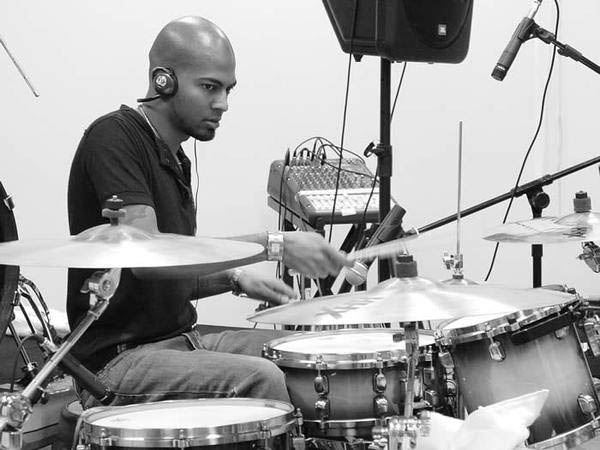Article contributed to Roland Australia by Magesh
About Magesh
Magesh is a drummer/producer and composer. He has performed with Rhianna, Lionel Richie, Ricky Martin, Chris Brown, Nelly Furtado, and Vernon Reid from Living Colour. He currently teaches students all over the world.
Here, he shares useful advice on how to efficiently practice the drums and build a solid routine.

Let's Get Started!
1. Have Fun!
At some point in time, we picked up drumsticks for one reason – it made us FEEL good. Whether that meant you played a basic beat on the pots and pans, air drummed the classic fill on ‘In the air tonight’ by Phil Collins or even played at a local bar. It’s easy for the journey of music to become stressful when we are too critical of ourselves.
2. Be Consistent.
It’s better to practice for 20 minutes EVERY day as opposed to 2 hours once a week. Our brains and fingers need consistent repetition to get musical phrases in our muscle memory. Practice the same time every day, for example, 4 o clock. It will become a habit as it is part of your schedule. Don’t wait until you ‘find time’ to practice. You won’t. There are too many distractions in life. By distractions, I mean funny cat videos on YouTube.
3. Get a Professional Teacher.
Online tutorials are great. Although, the one thing they can never give you is feedback on your technique and progress. I teach online and have students all over the world. Online lessons are amazing as you can learn music with a professional musician in your lounge room. You can also do this wearing your pyjamas.
4. Set Goals.
You might want to be a world-famous rock star one day or just learn how to play Green Day songs. Setting goals will be relevant to the amount of time you practice. I recommend 20 minutes a day if it’s a hobby and a minimum of 3 hours a day if you want to be a professional musician.
5. Learn to Read Music.
Learning to read music is just like learning a language. A professional teacher will help you understand time signatures, note values, and rests. I always tell students to avoid tab. It’s a lazy system that only works if you already know the song. You don’t have to be able to sight-read. Understanding what the hi-hat, snare drum, and bass drum look like in music notation will open a world of musical opportunities.
6. Play Along to Your Favourite Songs.
Learning rudiments like paradiddles and how to play with a metronome is important. Although, it’s also important to play along with your favourite songs. Put headphones on and do your best to mimic the musical phrases. Don’t get caught up on perfectionism. Aim to get the same feel as the musicians on the song.

7. Learn What YOU Want Not What Your PARENTS Want.
If you learn the type of music you like, no one will have to twist your arm to practice. I try and persuade parents to NOT have their children take music exams. A lot of the time they take the fun out of learning music.
8. Look for Inspiration.
When I was a kid, I had to buy a magazine to read about my favourite musicians. Now with the internet, you can watch interviews with your favourite musicians 24/7. Their knowledge can help you avoid making the mistakes they made and take time off the trial-and-error process. Their words and playing can inspire you to practice new beats and fills.
9. Jam With Other Musicians
If you have siblings that also play instruments you are extremely lucky! You now have partners in crime to jam with any time you wish. The positive of playing music with your siblings is that they will give you honest (sometimes brutal!) feedback on how you sound. You may also be the next Jackson 5 or Proclaimers.
10. Be Kind to Yourself.
This is the hardest part of all. A lot of us think that if we are not hard on ourselves, we will not progress to the next level. This is a flawed concept. Being hard on yourself usually leads to feeling bad and then having a negative association with playing music. Also, don’t compare your level of ability on your instrument to anyone else. It’s easy to go online and see a 12-year-old musical prodigy and think that you suck compared to them! This type of thinking isn’t helpful to your progress as a drummer.
About the Author

https://www.mageshdrumteacher.co.uk/
Other Articles by Magesh
What to do when a drum student loses motivation
How to be more creative on your instrument
Gear Reviews by Magesh

